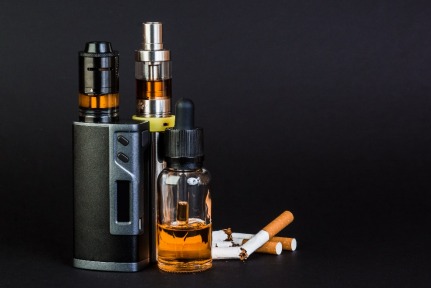
The Corporate Accountability and Public Participation Africa (CAPPA) has called on the Federal Government to immediately raise the excise tax on tobacco products to 100 percent, warning that continued lax taxation is fueling a public health crisis and costing the nation over ₦526 billion annually in healthcare spending and productivity losses.
In a statement issued on Thursday, August 7, CAPPA said the tobacco industry is “aggressively targeting Nigerians—particularly the youth—with traditional and novel products like vapes and e-cigarettes,” even as tobacco use remains a leading cause of non-communicable diseases (NCDs) and premature deaths.
“The Nigerian government must act urgently to protect public health. A 100 percent tobacco tax is not only necessary but overdue. It is a globally proven strategy to reduce tobacco consumption, discourage youth addiction, and save lives,” said Akinbode Oluwafemi, Executive Director of CAPPA.
Quoting the World Health Organisation (WHO), the group warned that tobacco use is linked to lung cancer, chronic obstructive pulmonary disease, dementia, sudden infant death syndrome (SIDS), cardiovascular disease, birth defects, skin damage, vision loss, and other health complications.
According to data from the Nigerian Tobacco Control Data Initiative, 90 percent of tobacco production occurs in developing countries like Nigeria, which suffer environmental degradation and health burdens while richer nations rake in profits.
As of 2018, Nigerians were consuming over 20 billion sticks of cigarettes annually, according to federal government estimates. Meanwhile, nearly 30,000 Nigerians die each year from tobacco-related diseases.
CAPPA also cited a 2019 analysis by the Centre for the Study of the Economies of Africa (CSEA), which found that Nigeria spent ₦526.4 billion on treating tobacco-related illnesses that year alone.
Despite these figures, CAPPA noted that Nigeria currently operates a mixed excise tax system on tobacco, which includes:
A 30 percent ad valorem tax on the unit cost of production;
A specific excise tax of ₦84 per pack of 20 cigarettes (since June 1, 2022); and
A shisha tax of ₦3,000 per litre or ₦1,000 per kilogram, increasing by ₦500 annually.
Although the government had proposed raising the tobacco tax to 50 percent in April 2023, the proposal has yet to be implemented.
“The government must go beyond lip service and match its public health rhetoric with action,” Oluwafemi stated. “Our neighbours are already moving boldly.”
He pointed to recent bold steps taken by other African countries:
Senegal last Friday raised its tobacco tax from 70 percent to 100 percent under Prime Minister Ousmane Sonko’s administration.
Kenya announced an immediate ban on the importation of tobacco and nicotine products such as vapes, citing a sharp rise in youth addiction.
South Africa, on June 3, proposed new anti-tobacco laws outlawing vaping and smoking in public spaces, after studies confirmed that vape vapours are harmful to lung health.
“In Nigeria, the tobacco industry is having a field day aggressively targeting young Nigerians with their novel products such as vapes and other e-cigarettes, which they know are not only addictive, but also harmful,” Oluwafemi added. “Using their so-called ‘tobacco harm reduction strategy’, the tobacco industry continues to hoodwink the public that vapes and other e-cigarettes are safe alternatives. This is false and dangerous.”
He stressed that tobacco-related diseases are not only a public health issue but a national economic crisis. “They strain our fragile health systems, drain national budgets, reduce workforce productivity, and trap families in poverty,” he said.
CAPPA is now urging the Federal Government to:
Immediately raise excise tax on tobacco products to 100 percent;
Ring-fence part of the revenue for health promotion and the prevention of NCDs;
Fully implement the National Tobacco Control Act; and
Resist interference from the tobacco industry in policy-making.
“What the tobacco industry is doing is grooming the next set of addicts to replace the thousands of Nigerians who die from tobacco-related diseases and the many others whose lives are destroyed. They must be stopped,” Oluwafemi said.
He concluded, “Raising the tobacco tax is a moral, health, and economic imperative. The government must act now—not later.”